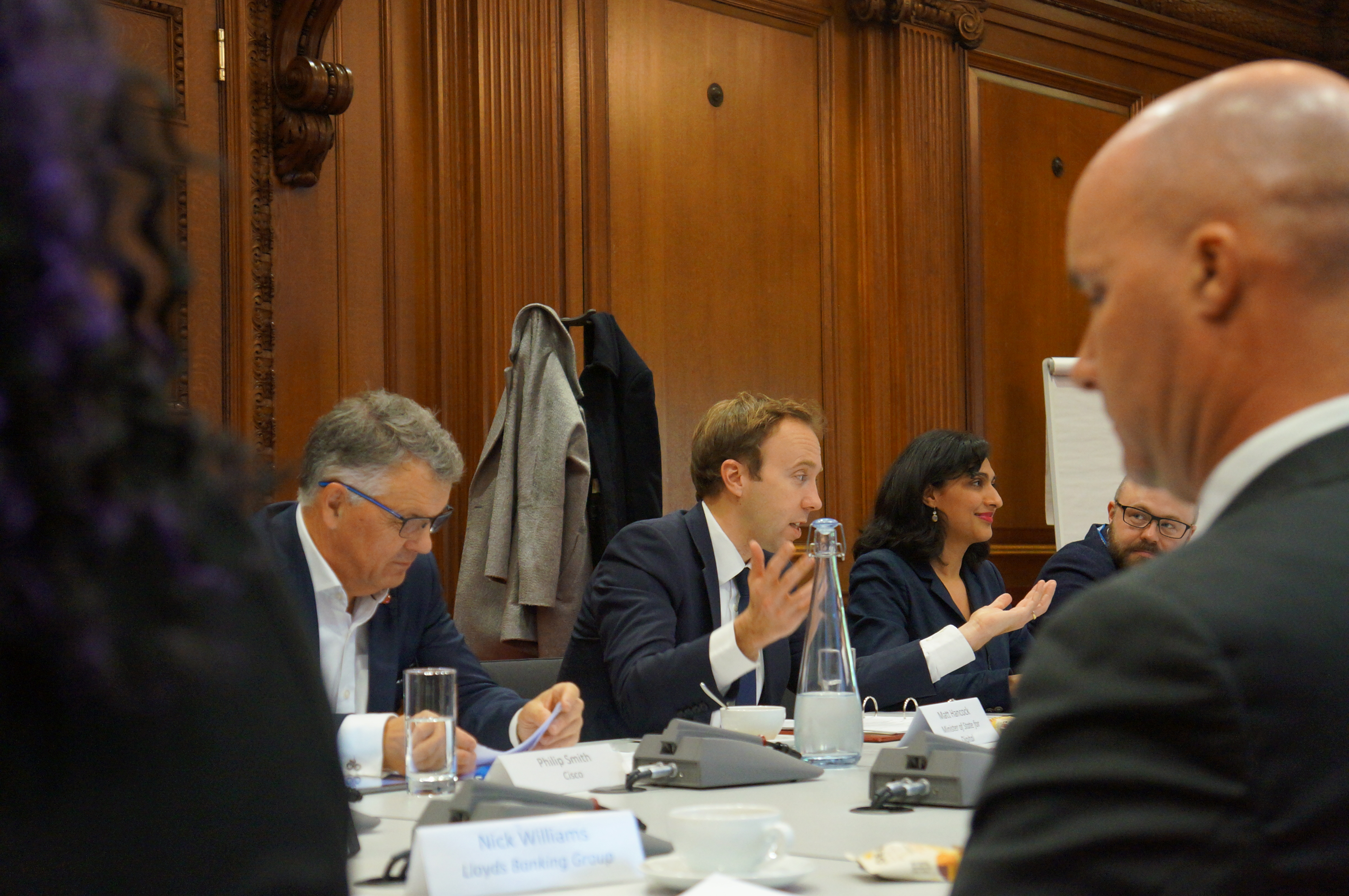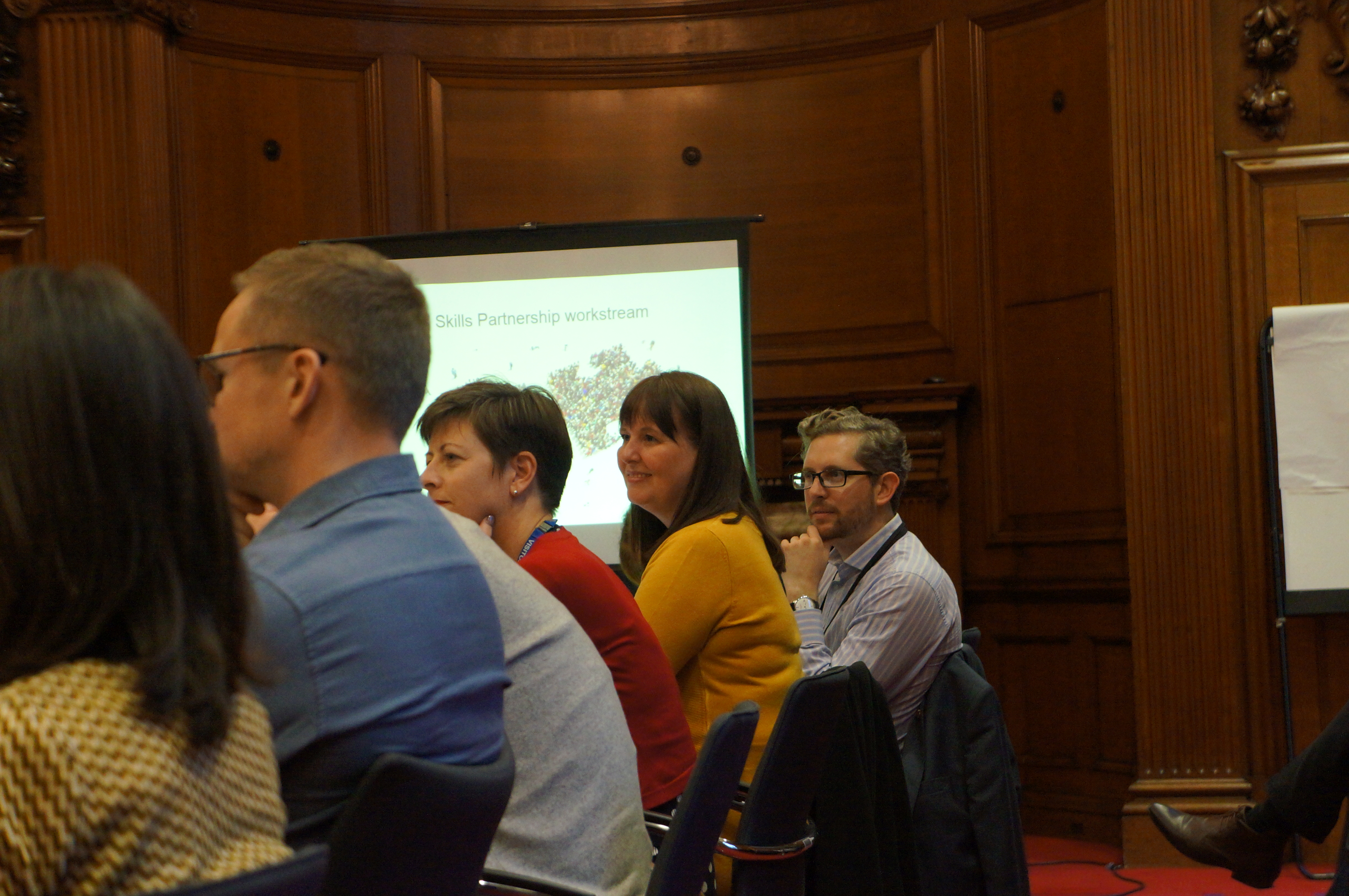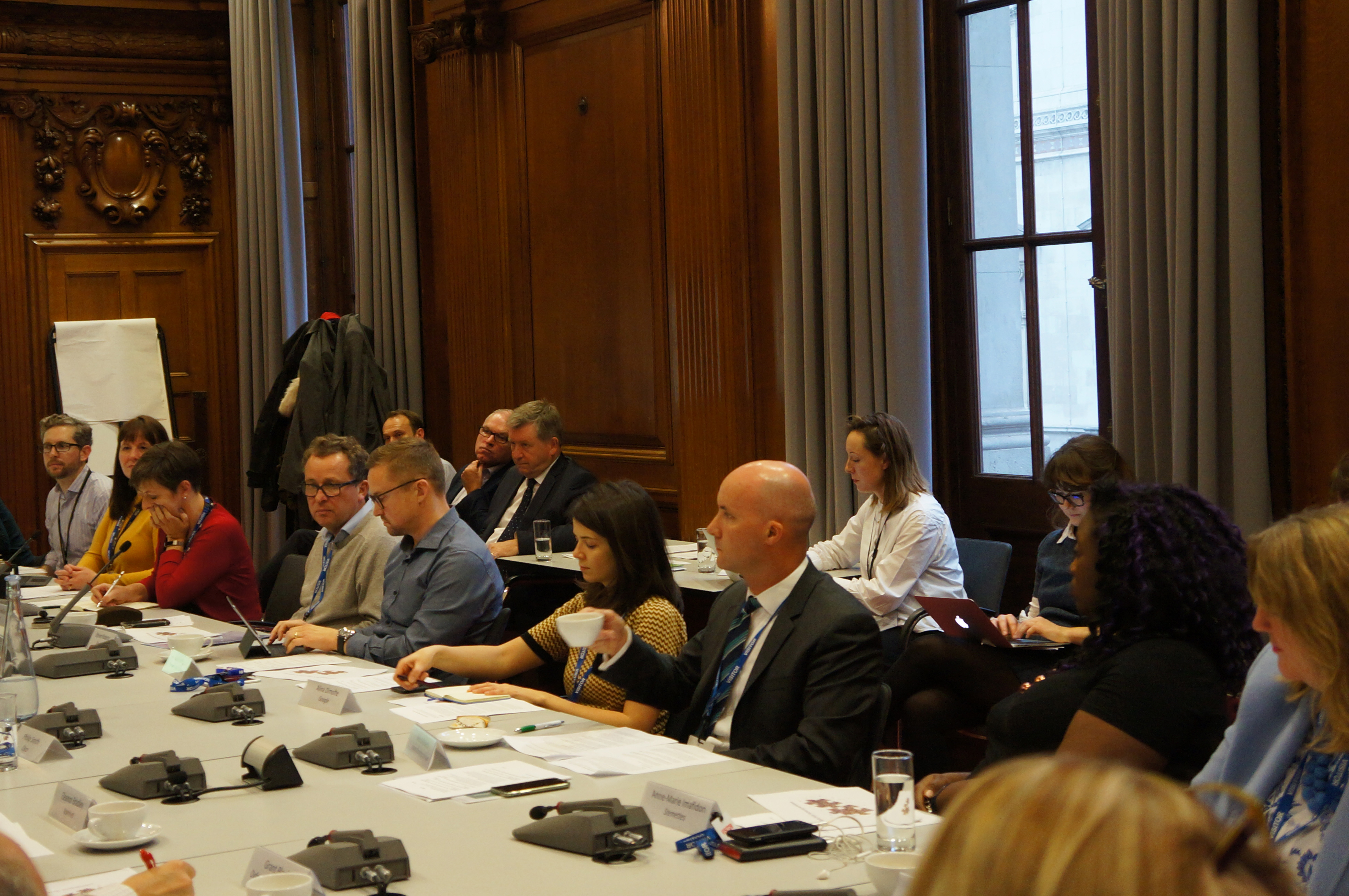When we launched the UK Digital Strategy in March of this year, we announced that we would establish a new Digital Skills Partnership (DSP). We said we would focus on strong collaboration between the public, private and third sector to tackle the digital skills gap in a co-ordinated and coherent way, so the sum is greater than the parts and everyone everywhere has better access to the training they want.

Working together
We in government have a role to play, not least in convening partners and supporting collaboration, both locally and nationally, to meet the challenges ahead. We cannot meet those challenges alone. As part of the commitment to work together I was delighted that four million digital skills training opportunities were pledged by partners, including Lloyds, Barclays, Google, BT and Accenture, to support the Digital Strategy.
I’m even more delighted that in the space of eight months more than half of those opportunities have already been delivered. So a lot has been achieved already – but this is just the beginning.

Thinking about the future
Since the launch of the Digital Skills Partnership this Summer we’ve held consultations and workshops with a cross section of organisations, businesses and charities to discuss ways of working and priorities.
We’ve merged what was formerly the Council for Digital Inclusion into the DSP Board. We’ll retain that focus on increasing digital inclusion and basic digital skills but we’ll also consider the general digital skills our workforce needs and advanced skills for the specialist roles that a world-leading digital economy demands.
Digital Skills Partnership Board
On Tuesday 14th November, I hosted the first meeting of the DSP Board which will provide strategic support and challenge. There was a great energy in the room and I want to thank all the members for their commitment to share their time and experience with us. A special thanks to my co-chair Phil Smith, Chair of the Tech Partnership and of Cisco UK & Ireland.

We agreed that we need to focus on delivery – getting things done. In the first instance, we will focus on:
- Promoting and supporting the creation of Local Digital Skills Partnerships and securing further pledges that can be better targeted to meet local needs.
- Improving what can be seen as a somewhat fragmented landscape for digital skills training; at the moment it can be difficult for potential learners to understand what provision is out there and whether it is any good, but it’s also hard for providers to determine whether they’re filling the right gaps.
- We’ll continue to focus on the great work led by Lloyds Banking Group on increasing the digital capability of our SMEs and charities.
My Digital Skills and Inclusion team will post more on the above via the Digital Skills and Inclusion blog over the coming weeks and months.
Those are our immediate priorities, but we’ll also be considering which other areas could benefit from better collaboration to achieve better outcomes.
Tackling the digital skills gap
This work will be driven by DSP Delivery Groups, made up of a wide range of partners, to ensure diversity of thought and and an outcomes-focussed approach that meets user needs. But this partnership is not just about partners on the the DSP Board and partners on the Delivery Groups. It’s a about getting as many partners involved as possible who feel as passionately as we do about the tackling the digital skills gap. We can’t do this alone.
Here are the Terms of Reference and below is the list of our Members. If your organisation wants to join the DSP by providing resources, expertise, free training or other types of support, you can email the team at digital-skills-and-inclusion@culture.gov.uk.
You can follow our progress on the digital skills and inclusion team blog, where we will feature guest blog posts from some of our partners too.
Members
Co-Chairs
Department for Digital, Culture, Media and Sport: The Rt Hon Matt Hancock, Minister of State for Digital
Cisco UK & Ireland, The Tech Partnership: Phil Smith, Chair
Board Members
AbilityNet: Nigel Lewis, CEO
AWS: Gavin Jackson, Managing Director UK&I
Barclays: Steven Roberts, Director, Strategic Transformation
BBC: Jessica Cecil, Controller of BBC Make it Digital
BT: Liz Williams, Director, Tech Literacy & Education
Federation of Small Businesses: Martin McTague, Policy Director
Global Tech Advocates: Russ Shaw, CEO
Good Things Foundation: Helen Milner, CEO
Google: Alina Dimofte, Public Policy Manager
Lloyds Banking Group: Nick Williams, MD, Consumer and Commercial Digital
Microsoft: Becky Foreman, UK Corporate Affairs Director
Nominet: Eleanor Bradley, COO
Oxford Internet Institute: Grant Blank, Research Fellow
Raspberry Pi: Phil Colligan, CEO
Tech Partnership: Karen Price, CEO
Tech UK: Anthony Walker, Deputy CEO
Stemettes: Anne-Marie Imafidon, CEO and Founder
 Department for Culture, Media and Sport
Department for Culture, Media and Sport